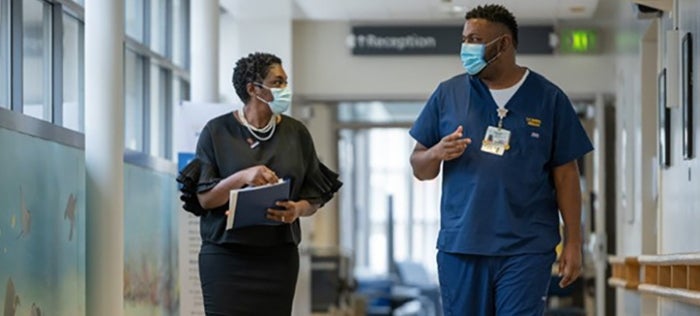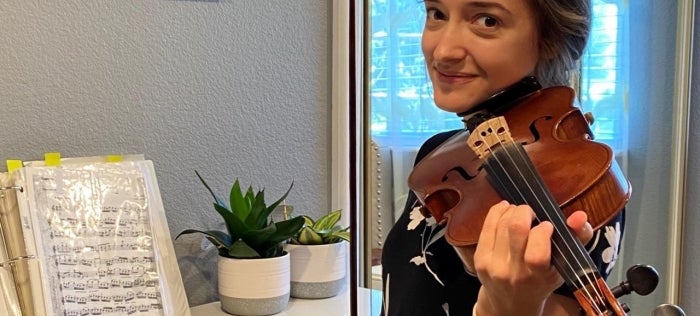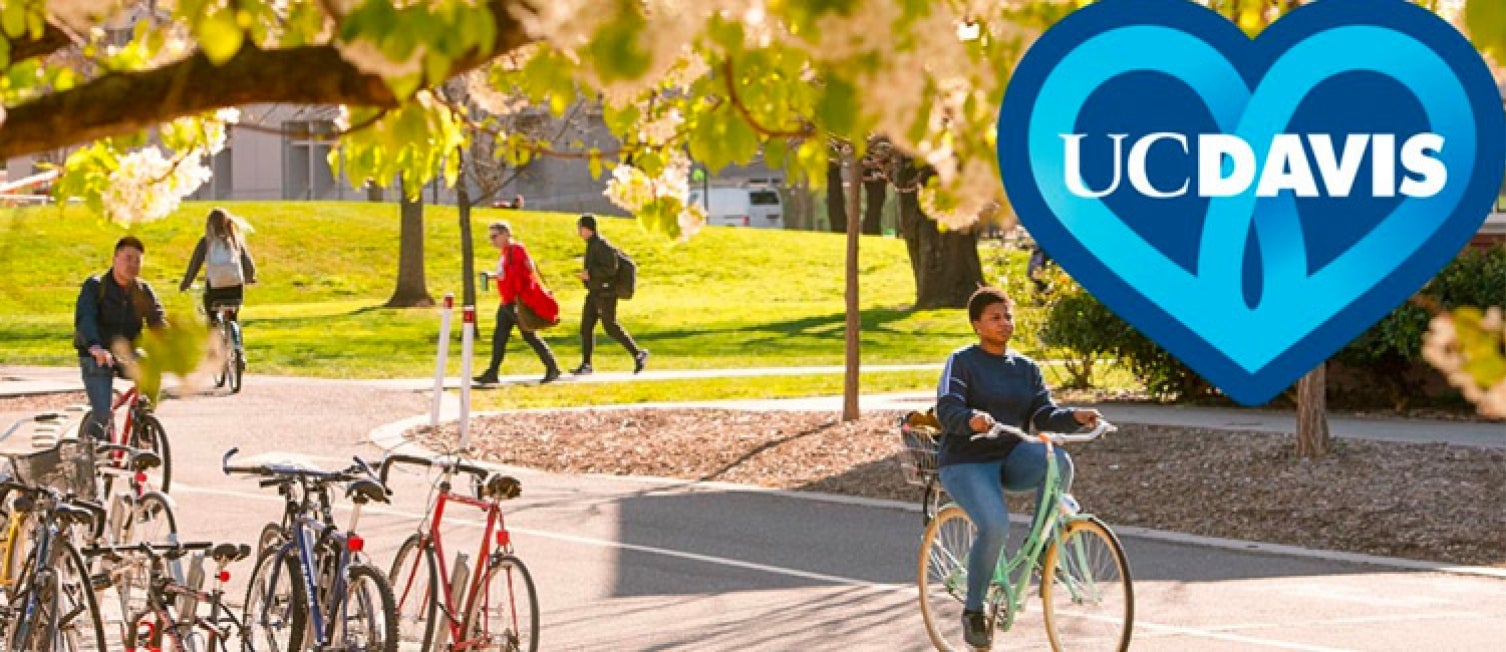
Greatness unleashed
Twenty years of Chancellor’s Fellows, 20 years of impact
For 20 years, philanthropy has given brilliant midcareer faculty at UC Davis the freedom to pursue their dreams.
Since its first class in 2000, the donor-funded Chancellor’s Fellows program has resulted in remarkable achievements and given students at all levels direct research experience as they participated in projects that were often exploratory or groundbreaking in nature.
We can now look back on two decades of success. From the seed of a relatively modest investment—an unrestricted cash award of $25,000 for each fellow—amazing discoveries have sprung forth.
Our Chancellor’s Fellows, now 154 strong, have helped UC Davis build a global reputation for discovery and innovation. We are pleased to present a selection of their stories here.
Wine wisdom
Andrew Waterhouse, awarded 2000
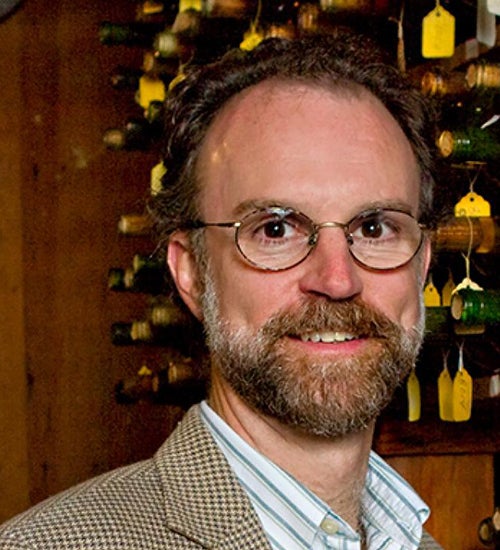 When asked how his Chancellor’s Fellows award helped him, Andrew Waterhouse keeps it simple: “The award allowed me to pursue early work on wine oxidation, a new area of research for me—and it became the foundation of my program.”
When asked how his Chancellor’s Fellows award helped him, Andrew Waterhouse keeps it simple: “The award allowed me to pursue early work on wine oxidation, a new area of research for me—and it became the foundation of my program.”
That’s staggering when one considers the scope of his program today. Waterhouse, a professor of enology, is one of the world’s foremost experts in wine chemistry; his research explores phenolic compounds that affect both the taste of wine and health effects on the consumer.
His work has launched careers for numerous graduate students and strengthened UC Davis as a leading brain trust for California’s powerhouse wine industry. And as director of the Robert Mondavi Institute for Wine and Food Science, Waterhouse helps promote research and teaching at a state-of-the-art complex that includes not only a certified winery but also a brewery and a food and milk processing laboratory—thus extending his influence way beyond wine.
Illuminating breast cancer genes, saving lives
Wolf-Dietrich Heyer, awarded 2000
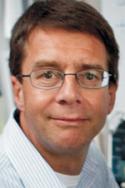 The Chancellor’s Fellows award to Professor Wolf-Dietrich Heyer turned out to be a tremendous gift to the world. Heyer had just decided to tackle a big problem in genetics: purifying the BRCA2 protein, a central suppressor of breast and ovarian tumors.
The Chancellor’s Fellows award to Professor Wolf-Dietrich Heyer turned out to be a tremendous gift to the world. Heyer had just decided to tackle a big problem in genetics: purifying the BRCA2 protein, a central suppressor of breast and ovarian tumors.
“Having purified protein is essential to define the functions of the protein and understand its mechanism,” said Heyer, now chair of the Department of Microbiology and Molecular Genetics and co-leader of the Molecular Oncology Program at the UC Davis Health Comprehensive Cancer Center.
“Such fundamental insights provide the underpinning for more translational and clinical studies that directly help cancer patients,” Heyer noted. “It is very difficult to start a project from scratch. Funding for scientific research relies on preliminary data, but how can you finance the studies that give you such results, in particular when the project is risky and ambitious?”
Heyer and his colleagues went on to groundbreaking discoveries illuminating the behaviors of BRCA1 and BRCA2, creating the framework for the future of cancer therapies. The dream is now in reach: One day, physicians will be able to prescribe a customized treatment plan for each patient based on the patient’s genetic profile.
Exploration from the South Pole to Mars
Dawn Sumner, awarded 2003
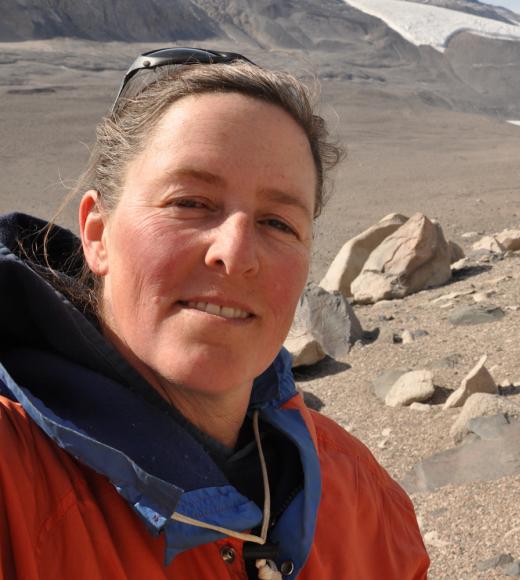 Dawn Sumner, a professor of earth and planetary sciences, moved from studying microbial communities in primeval rocks and ice-covered lakes in Antarctica to searching for ancient life on Mars. For that adventurous arc she thanks her Chancellor’s Fellows award.
Dawn Sumner, a professor of earth and planetary sciences, moved from studying microbial communities in primeval rocks and ice-covered lakes in Antarctica to searching for ancient life on Mars. For that adventurous arc she thanks her Chancellor’s Fellows award.
“The award allowed us to start studying modern bacteria to compare to the ancient rocks, and the results from those experiments allowed us to publish our first papers on modern bacteria. It really changed the way we think about ancient rocks,” said Sumner.
Her innovative work earned her a position as a scientist on NASA’s Curiosity rover mission on Mars: “I help decide what scientific observations the rover should take, and we use those observations to try to understand what early Mars was like—and whether or not there’s any evidence that life once existed on Mars.”
Scary smart bacteria
Nicole Baumgarth, awarded 2007
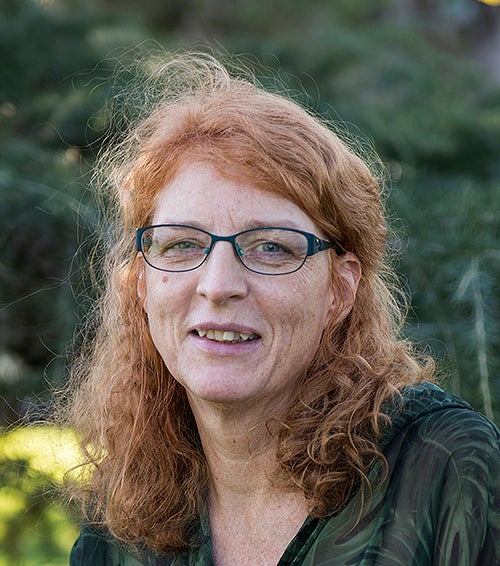 Professor Nicole Baumgarth, Ph.D., D.V.M., seeks to understand how the body fights off infections such as influenza and Lyme disease, which is by far the most common vector-borne disease in the United States and Europe.
Professor Nicole Baumgarth, Ph.D., D.V.M., seeks to understand how the body fights off infections such as influenza and Lyme disease, which is by far the most common vector-borne disease in the United States and Europe.
Her studies showing how the Lyme pathogen disables the immune system in mice are considered groundbreaking.
“Previously it was thought that these bacteria ‘hide’ from the immune system. Our work has shown they actually very effectively activate the immune system. B. burgdorferi stimulates the immune response just enough that the bacteria do not overwhelm and kill the mouse—but not enough to clear the infection or confer immunity,” said Baumgarth, who credits her Fellows award with allowing her to develop pivotal mouse models.
The discovery helps explain repeat infections and why blood tests may not be an effective method for detecting previous exposure to Lyme disease.
Of coffee and contagions
William Ristenpart, awarded 2014
Chemical engineering professor William Ristenpart teaches students to love science through a popular passion: coffee.
Ristenpart is director of the UC Davis Coffee Center, a hub of coffee science research and education. His class, The Design of Coffee, launched in 2013 to 18 students; he and colleague Tonya Kuhl (another Chancellor’s Fellow) now enroll more than 1,500 a year.
“Hands-on coffee experiments demonstrate key engineering principles including material balances, chemical kinetics, mass transfer, fluid mechanics, conservation of energy, and colloidal phenomena,” the professors say about a course that students have voted the best general education class on campus.
Ristenpart’s other passion involves understanding the movement of aerosols—particles small enough to travel through air—including how aerosols can spread disease. He recently made headlines with findings that normal speech by individuals who are asymptomatic but infected with coronavirus may produce enough aerosolized particles to transmit the infection.
Both the Coffee Center and his airborne disease research were kickstarted by funding from the Chancellor’s Fellows award, said Ristenpart: “Without that support, neither thing would have happened—nor would I have gone on to receive several million dollars in external support. So a little bit of Chancellor’s Fellows funding went a long way!”
Come on, get happy
Alison Ledgerwood, awarded 2017
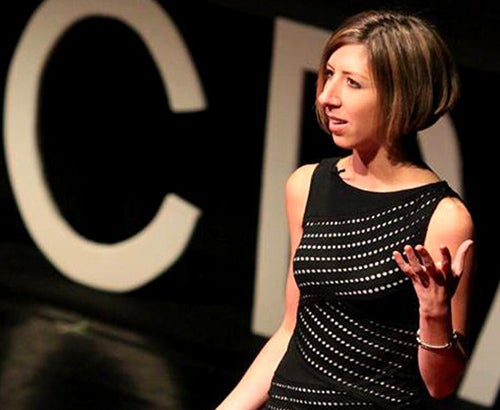 Alison Ledgerwood, a professor of psychology, has a message the world is hungry to hear: While human beings tend to get “stuck” in negative thinking, we can train ourselves to be more positive. Her TEDx talk on these findings, which includes simple techniques to promote optimism and greater well-being, has been viewed nearly 5 million times.
Alison Ledgerwood, a professor of psychology, has a message the world is hungry to hear: While human beings tend to get “stuck” in negative thinking, we can train ourselves to be more positive. Her TEDx talk on these findings, which includes simple techniques to promote optimism and greater well-being, has been viewed nearly 5 million times.
The Chancellor’s Fellows award allows Ledgerwood’s lab to build on that work in significant ways. For example, one of her Ph.D. students found that our negativity bias declines as we get older and eventually disappears altogether.
In this project and many others, the award helps Ledgerwood train and mentor numerous graduate and undergraduate students, including, she noted, many from groups underrepresented in STEM fields.
One Climate, many perspectives
Beth Rose Middleton, awarded 2017
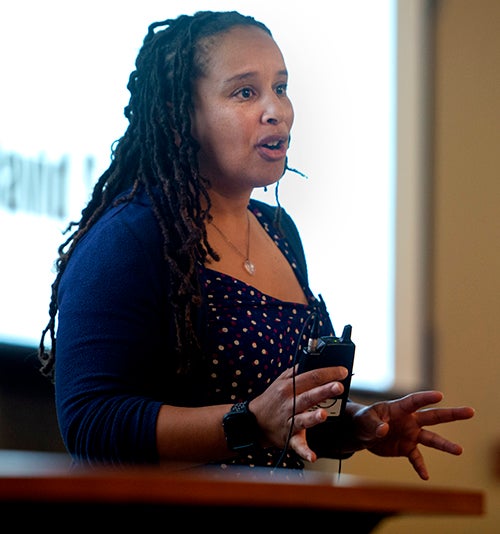 Beth Rose Middleton, a professor of Native American Studies, focuses on Native environmental policy, rural environmental justice and Indigenous analyses of climate change—areas of expertise that make her a valuable team member guiding One Climate, a UC Davis Big Idea seeking to innovate and catalyze effective responses to climate challenges.
Beth Rose Middleton, a professor of Native American Studies, focuses on Native environmental policy, rural environmental justice and Indigenous analyses of climate change—areas of expertise that make her a valuable team member guiding One Climate, a UC Davis Big Idea seeking to innovate and catalyze effective responses to climate challenges.
“The One Climate initiative is exciting to me because of its inclusive vision,” said Middleton. “It really will take all disciplines and perspectives to reduce greenhouse gases and prevent ecological, socioeconomic, political and cultural impacts of catastrophic climate change.”
Middleton is using her Chancellor’s Fellows award to expand her research on the opportunities and challenges of tribal participation in carbon trading, in which tribes sell carbon credits earned by sustainable management of tribal lands. She is in the thick of that work now and has begun publishing articles with a book in mind.
“Hopefully I’ll have a lot more to say about it by spring 2022!” she said.
The Chancellor’s Fellows program is supported by gifts to the Annual Fund and Parents Fund as well as the Davis Chancellor’s Club.

